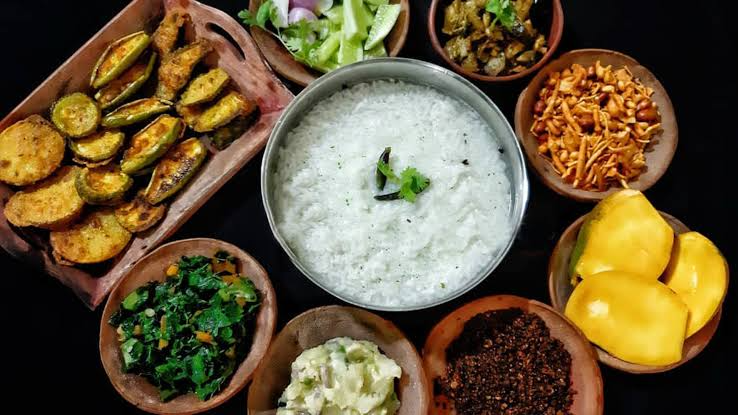[ad_1]
Bhubaneswar, Mar 20: In a vibrant show of cultural delight and culinary delight, the jap Indian state of Odisha celebrates Pakhala Dibasa with fervor and enthusiasm at present. This annual pageant, devoted to the standard but beloved dish of “Pakhala” or fermented rice water, is a testomony to the wealthy culinary heritage and sustainable practices deeply ingrained in Odia tradition.
Because the mercury rises and summer season approaches, Pakhala Dibasa presents a refreshing respite, each gastronomically and culturally, bringing folks collectively to savor a style of custom.
Origins of Pakhala Dibasa :
Pakhala, derived from the Sanskrit phrase “Prakshaalana,” which means washing or rinsing, has been a staple in Odia delicacies for hundreds of years. Traditionally, it served as a nutritious and cooling meal for farmers and laborers working within the sweltering warmth of the summer season. Over time, Pakhala advanced from a easy dish right into a cultural image, representing simplicity, sustainability, and neighborhood bonding.
The inception of Pakhala Dibasa could be traced again to social media in 2012 when a gaggle of Odia meals fanatics launched a marketing campaign to rejoice Pakhala because the state’s conventional dish. Since then, March twentieth has been designated as Pakhala Dibasa, with celebrations gaining momentum throughout Odisha and among the many Odia diaspora worldwide.
Celebrations and Traditions:
Pakhala Dibasa is not only about relishing a meal; it is a celebration of Odia tradition, custom, and values. On today, households throughout Odisha put together and share Pakhala with mates, household, and neighbors. The preparation of Pakhala includes soaking cooked rice in water and permitting it to ferment in a single day, leading to a tangy and flavorful concoction often called “Basi Pakhala.”
Accompaniments differ in response to private preferences and regional variations however typically embrace fried or mashed greens, pickles, papad, and curries. Some revolutionary variations like “Basi Bhaat,” the place leftover rice is combined with water and seasoned, are additionally widespread throughout this pageant.
Furthermore, the spirit of Pakhala Dibasa extends past the eating desk. Communities set up cultural occasions, meals festivals, and cooking competitions centered round Pakhala, fostering a way of camaraderie and delight in Odia culinary traditions.
Embracing Sustainability:
Pakhala Dibasa holds significance not solely as a culinary celebration but additionally as a reminder of the significance of sustainability and aware consumption. Pakhala, with its use of fermented water and minimal substances, exemplifies resourcefulness and eco-friendliness. In a world grappling with environmental challenges, the simplicity of Pakhala presents priceless classes in lowering meals waste and embracing sustainable practices.
Moreover, the pageant promotes the consumption of domestically sourced substances, supporting farmers and small-scale producers whereas lowering carbon footprints related to meals transportation. By honoring age-old traditions like Pakhala, Odisha showcases its dedication to preserving cultural heritage and selling sustainable residing.
Pakhala Dibasa encapsulates the essence of Odia tradition – simplicity, inclusivity, and reverence for custom. Past its culinary attraction, the pageant underscores the significance of sustainability and neighborhood engagement in at present’s world. As Odisha celebrates Pakhala Dibasa annually, it reaffirms its cultural identification whereas inspiring people worldwide to cherish their heritage and embrace sustainable existence. So, let’s increase a glass of refreshing Pakhala and toast to the spirit of custom and sustainability!
[ad_2]
Source link





